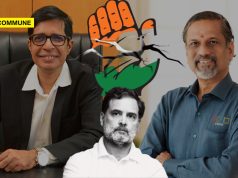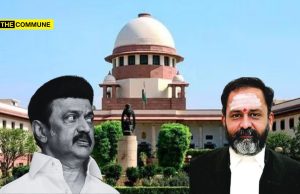
On 30 May 2024, Donald Trump, the former President of the United States, was convicted on all 34 felony counts in his hush money trial, marking a historic moment as the first former US president to face such serious legal consequences. The verdict has sparked a deep division between conservatives and liberals. Liberals have largely supported and reinforced the decision, sadly given their advocacy for political freedom. Meanwhile, Republicans have vehemently criticized the verdict, alleging bias and partisanship, especially in light of the upcoming presidential elections. They accuse the justice system of being sympathetic to President Biden and delivering a politically motivated judgment.
Despite this legal setback, Trump remains eligible to run for president in 2024, as the US Constitution outlines specific criteria for presidential candidates, none of which include disqualification due to criminal conviction. However, his voting rights may be impacted depending on his sentencing, particularly since he resides in Florida, where felons regain their voting rights upon completion of their sentence and associated obligations.
The guilty verdict has ignited immediate political reactions, with Trump denouncing the trial as rigged and vowing to prevail in the court of public opinion come November. Republican leaders have rallied behind him, viewing the verdict as politically motivated and rallying their support behind his campaign. This solidarity within the GOP is expected to strengthen Trump’s candidacy through increased fundraising and reinforced backing from his base.
The surge in donations following the verdict crashed the WinRed fundraising platform, underscoring the fervent support Trump still commands. Campaign strategists are capitalizing on this momentum, framing Trump as a victim of a biased justice system, a narrative that resonates with his base and has historically been effective in rallying support.
In a different political climate, a criminal conviction could have spelled the end of a presidential bid. However, Trump’s resilience in the face of previous controversies, including two impeachment trials and numerous allegations, suggests that this latest legal challenge may not significantly derail his campaign. As Trump awaits sentencing and continues his campaign, the political landscape remains volatile, with his conviction deepening partisan divides, energizing some supporters, and alienating certain segments of the Republican base. The coming months will shed light on the extent to which Trump’s legal troubles will influence his campaign and the broader electoral process in the United States.
Does this seem normal? Ain’t this something fishy, especially given the timing, with the crucial backdrop of the US presidential election looming on 5 November 2024. The intriguing aspect of this case lies in the involvement of the presiding justice, Manhattan Judge Juan Merchan, who has reportedly made modest contributions to Biden’s campaign and to causes aimed at countering Republicans. Essentially, he is identified as a Democrat (in terms of financial support) and holds an anti-Republican stance. Consider how this scenario would unfold in India? where a judge overseeing the sentencing of an opposition figure has financial ties to the ruling party highlighted by NBC News. In the United States, the District Attorney, essentially the chief public prosecutor is elected. Alvin Bragg campaigned on a platform that included prosecuting Trump. He elevated minor offenses to felonies. In essence, both the judge and the primary government prosecutor likely belong to opposing political camps. Once again, contemplate how this would be perceived in India?
For desis (Dhruv Rathee watchers of course) saying “Trump is different from Kejriwal” let’s look at the facts of the case and compare the outrage (from US no less) if this had happened in India.
The Judge in this case has made a small contribution to Biden’s campaign and to… pic.twitter.com/Cbarz3natY
— Arnab Ray (@greatbong) May 31, 2024
Yet, left-leaning liberal Democrats and their supportive media outlets such as The Washington Post heralded the verdict as ‘historic,’ while The New York Times declared ‘Guilty,’ and the BBC reported, ‘Donald Trump guilty on all accounts in historic trial.’ But that’s not all. Remember Freedom House, the US-based NGO that fashions itself as a human rights watchdog? Even before the verdict, it bolstered the narrative of Donald Trump’s political rights being curbed, anticipating his conviction with publishing article titled, “US: International Context for Prosecuting Former Presidents” on 15 May 2024. Even the NGO’s social media posts asserted, ‘No, it’s not weird for democracies to prosecute their former leader. 43% of the world’s freest countries have seen their president or prime minister charged with crimes since 2000‘ citing France, Isreal and Austria as example.
Over 40% of countries rated Free in #FreedomInTheWorld 2024 have prosecuted former heads of state or government since 2000.
FH's @markdelaiglesia outlines why, in the United States and around the world, its vital to hold the powerful to account.⬇️https://t.co/yo4TT541t2 pic.twitter.com/Mx63bGV2hg
— Freedom House (@freedomhouse) May 31, 2024
And now, let’s rewind a bit to understand, How the same Freedom House’s reports on India have been notably biased. In ‘Freedom in the World 2021′ report, where it accused the present Indian government of pushing India toward authoritarianism, citing lockdowns scapegoating minorities and a crackdown on critics, leading to downgrading India’s status from ‘Free’ to ‘Partly Free.’ Their report lamented, ‘India appears to have abandoned its potential to serve as a global democratic leader, elevating narrow nationalist interests at the expense of its founding values of inclusion and equal rights for all.‘ The irony here is striking. Will they hold the same mirror to their donors the USA? like ‘The USA appears to have abandoned its potential to serve as a global democratic leader, elevating narrow liberal interests at the expense of its founding values of freedom and equal rights for all,‘ remains a million dollar question. They also flagged concerns about judicial independence in India, which now seems echoed in Donald Trump’s hush money trial.
If we transpose Trump’s hush money trial court verdict and apply it to the Indian justice system, it would indeed yield surprising results. Let’s consider the case of Arvind Kejriwal. On 10 May 2024, the Supreme Court granted Kejriwal interim bail until 1 June 2024, in a case related to an excise policy scam and a money laundering case initiated by the Directorate of Enforcement (ED). Notably, despite the ED’s objections to granting interim bail, the Supreme Court imposed relatively lenient conditions, included restrictions on Kejriwal’s access to the Chief Minister’s office and the Delhi secretariat, except in cases where his signature was essential for approval from the Lieutenant Governor of Delhi. However, this exemption didn’t apply in the case of Amit Shah.
In contrast, on 30 October 2010, the Supreme Court directed Amit Shah, a former Gujarat minister, to leave Gujarat by the following morning due to concerns about potential evidence tampering. Despite this directive, the Court did not revoke his bail, scheduling a hearing for 15 November 2010. This decision was made during a special session at Justice Aftab Alam’s residence, in response to a plea by the Central Bureau of Investigation (CBI) seeking the annulment of Shah’s bail, which had been granted by the Gujarat High Court the previous day in connection with the Sohrabuddin Sheikh fake encounter case. The Bench ordered Shah to vacate the state by the next morning and remain outside its jurisdiction until further notice. Shah lived in exile for two years until 2012.
Comparing both instances reveals an intriguing contrast, while Arvind Kejriwal adeptly avoided arrest through legal maneuvers, ultimately securing bail despite the ED’s objections, Amit Shah complied with legal proceedings and directives but endured two years of exile. This raises questions about potential biases within India’s justice system towards particular political party and ideology, mostly the left. But the liberals and the left accusations that the ruling party holds sway over the judiciary seems a simple mockery.
Subscribe to our channels on Telegram, WhatsApp, and Instagram and get the best stories of the day delivered to you personally.




